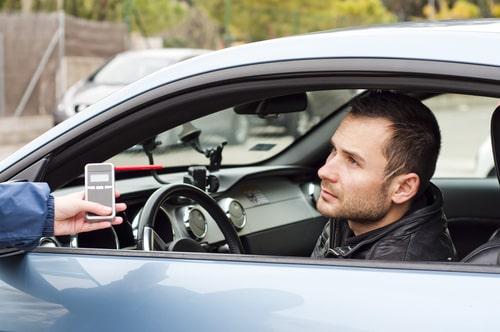Refusing a Breath Alcohol Test: Clearing Up the Confusion
 Driving under the influence of alcohol is a criminal offense punishable by significant penalties in Illinois. DUI offenders are subject to driver’s license revocation, expensive fines, vehicle impoundment, and even jail time in certain situations.
Driving under the influence of alcohol is a criminal offense punishable by significant penalties in Illinois. DUI offenders are subject to driver’s license revocation, expensive fines, vehicle impoundment, and even jail time in certain situations.
Alcohol breath tests, often referred to as breathalyzers or intoximeters, measure the amount of alcohol on a driver’s breath. The results of a breath test are often a crucial component in a DUI case. Consequently, many people wonder if they can refuse to take an alcohol breath test. This blog will explore the advantages and disadvantages of refusing a breathalyzer in Illinois.
Understanding the Two Types of Breath Tests in Illinois DUI Cases
There are two types of breath alcohol tests used in Illinois drunk driving cases. When a police officer suspects a driver of drunk driving, the officer may ask the driver to take a roadside breath test. The subject is asked to blow into the device, and the device displays the driver’s blood alcohol content (BAC) on a screen. If the driver’s BAC is above 0.08 percent, the driver is arrested for DUI. These small, handheld testing devices are called preliminary breath tests. The purpose of a preliminary test is to give police officers probable cause for a DUI arrest. The results of preliminary tests are not used as evidence in a DUI case.
Once the driver is arrested and taken to the police station, he or she is asked to take an “evidentiary breath test.” Evidentiary tests use much larger devices that yield more accurate results. The results of an evidentiary test are admissible as evidence in a DUI case.
Implied Consent and Refusing a Breathalyzer
Contrary to popular belief, there is no legal consequence for refusing a preliminary breath alcohol test. If police pull you over and ask you to take a breath test, you have the right to refuse. However, the police can still arrest you for drunk driving and take you to the police station for an evidentiary test. You are required to take the evidentiary breath test. Per Illinois “implied consent” laws, refusing an evidentiary breath test automatically results in a one-year driver’s license suspension.
There are pros and cons to refusing a breath alcohol test. Refusing the test means that your driver’s license will be suspended. However, refusing the test may lessen the evidence against you during your DUI case and decrease your chances of conviction. That being said, if there is ample evidence against you, you may still be convicted for DUI even if you refused to take a breath test.
Contact an Aurora DUI Defense Lawyer
If you or a loved one were charged with driving under the influence, contact Naperville DUI defense attorney Patricia Magaña for help. Call 630-448-2001 for a free initial consultation.
Source:
https://www.ilsos.gov/publications/pdf_publications/dsd_a118.pdf

 630-448-2001
630-448-2001






